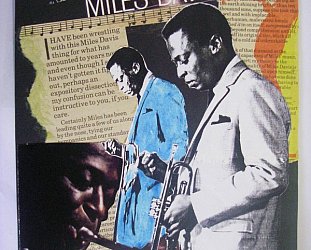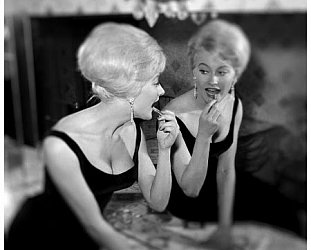Graham Reid | | <1 min read

This scattergun Pollock-like piece was done for Real Groove magazine to illustrate an article about the American free jazz musician David S Ware, who pointed out free jazz ain't free, it comes with a high price for the artist.
The article started by noting how the dogmatic neo-con movement steered by Wynton Marsalis and others had further marginalised free jazz as a form of expression, yet it had been so important in the extension of the music into areas of personal freedom.
Among those were Ornette Coleman and so the idea of making a messy reference to Jackson Pollock sprang from there: Coleman had a Pollock on the cover of his seminal Free Jazz album of 1961.
It's not a very good piece of art on any level -- it also got a bit mangled and flattened -- and what I remember most was how long the oils took to dry.
In fact they may not even be dry even now, many decades later.
But if it got people's attention then it served its purpose.
.
You can read the article it illustrated here.
For other Art by Elsewhere go here.





post a comment